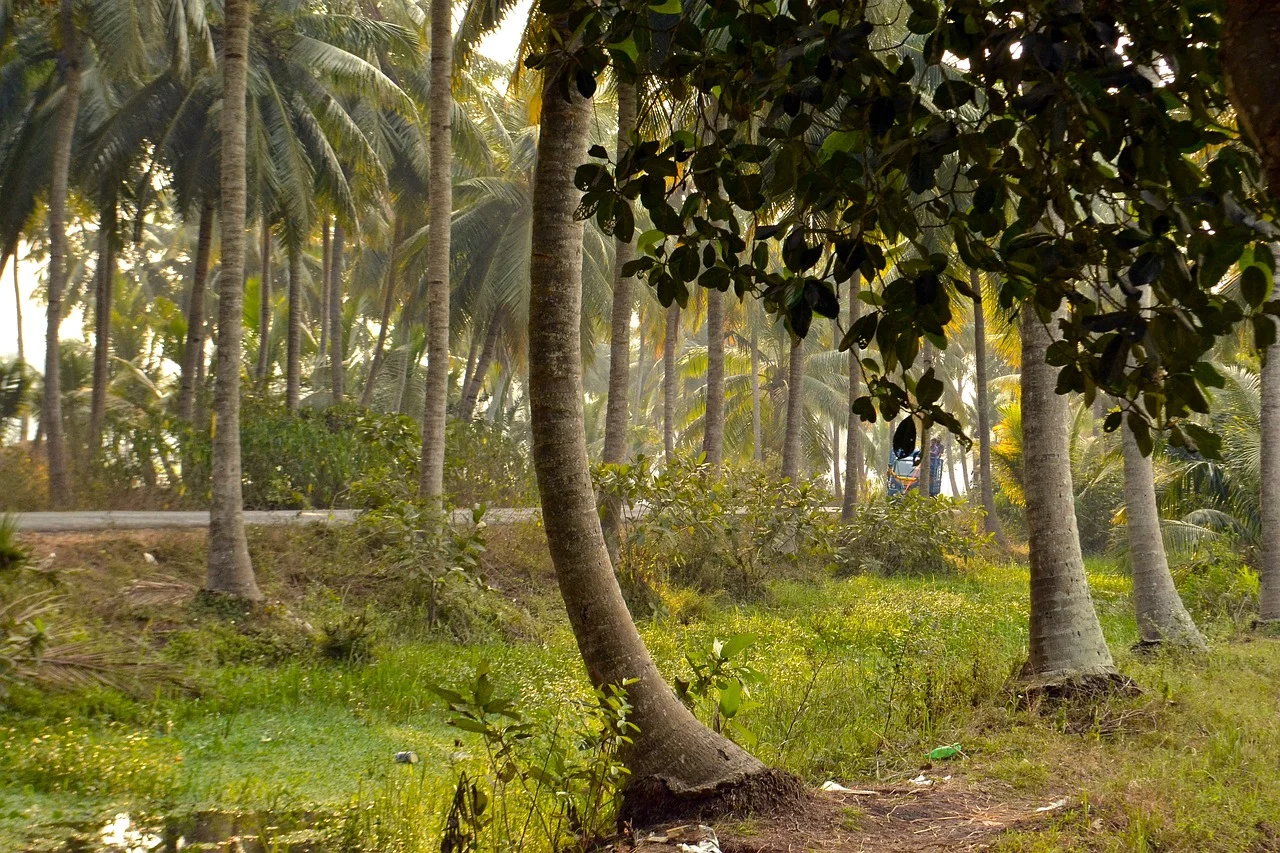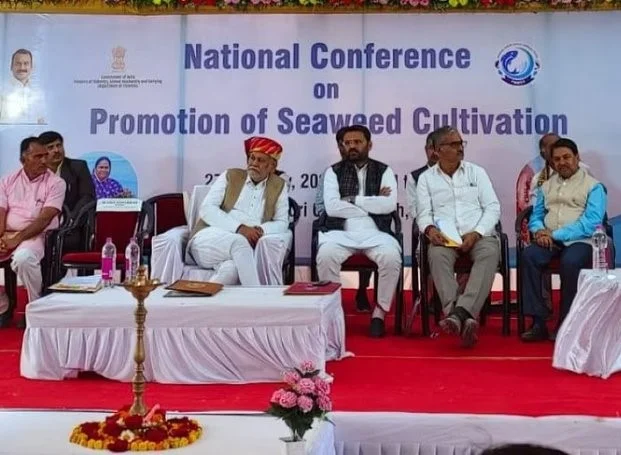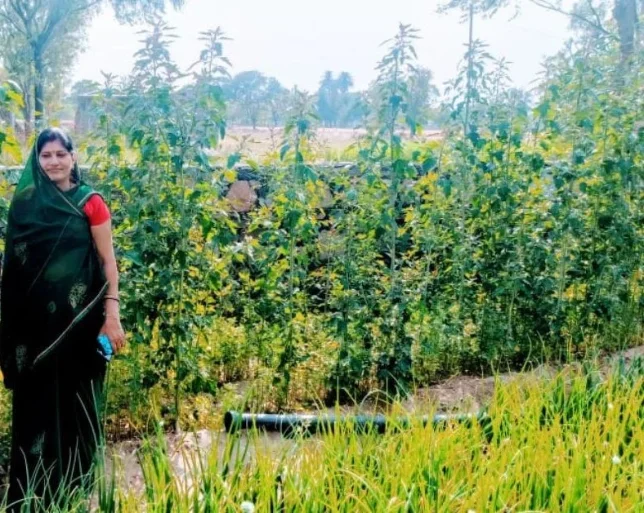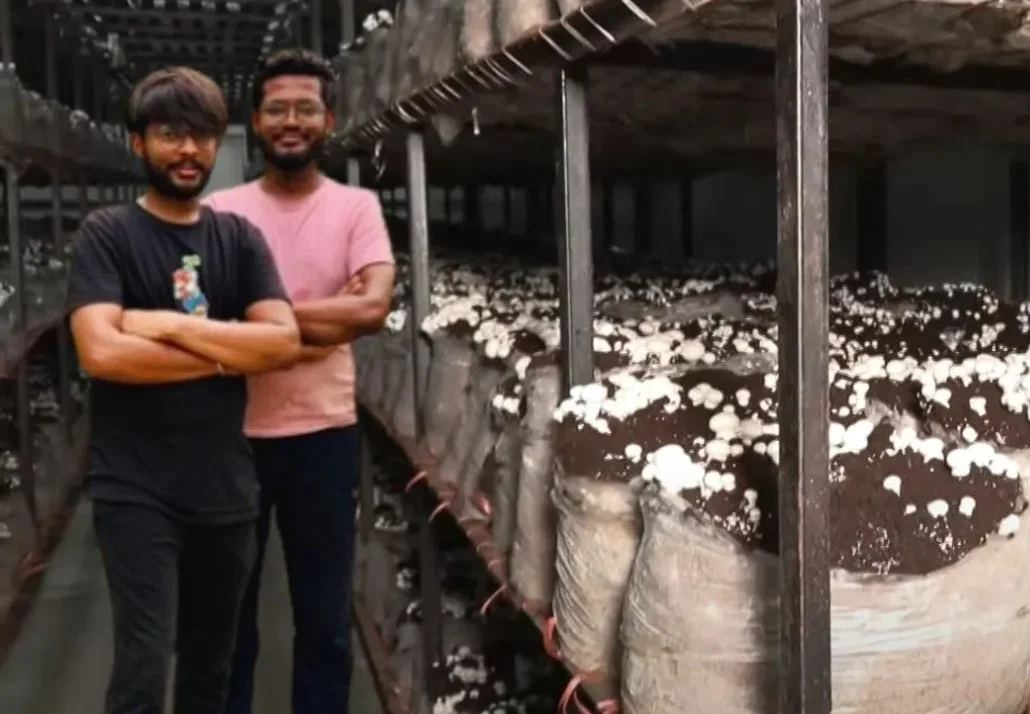Tijara Organic Farm, situated in the scenic Alwar district of Rajasthan, stands as a testament to the dedication and vision of its proprietors, Sneh Lata Yadav and Col. Tara Singh. Just a serene two-hour drive from the vibrant city of Delhi, this organic sanctuary spans 10 acres, covering two plots of land. What distinguishes Tijara is not only its breathtaking beauty but also the unwavering commitment to sustainable and traditional farming practices.
Speaking about the inception of their agricultural journey, Col. Tara Singh, co-owner of the farm, shares insight, “We acquired this land in 2010, both of us coming from farming backgrounds. The idea was rooted in our family history, as our ancestors were farmers. So, you could say that farming is ingrained in our genes.”

Recalling the initial challenges they confronted, Sneh Lata elaborates, “When we acquired the land, there were no roads, no electricity, no water, and not a single tree in sight. The soil lacked fiber, being predominantly clayey, leading to poor soil porosity. The first time it rained, we faced waterlogging for a good three days.” Undeterred by these obstacles, the couple promptly took measures to rectify the land’s shortcomings.
Col. Tara Singh emphasizes, “Immediately after the rains ceased, we initiated the creation of a water harvesting system. We dug 6 feet deep pits, interconnected them, leading to two 10 feet deep pits, and finally, a 20 feet deep well. These systems are interconnected, allowing excess water to flow from one pit to another until the 20 ft well is fully replenished.” This strategic approach not only addressed waterlogging issues but also laid the foundation for a sustainable water management system.

Sneh Lata continues, “Within six months, we acquired another parcel of land that truly reflected the soil characteristics of Rajasthan. Both farms are interconnected, and we began planting trees, recognizing that rains were contributing to soil erosion.”
Also Read: Assam Techie Builds Rs 22 Crore Egg Business
Building an Ecosystem
“When we initiated the establishment of this farm, we strategically divided it into distinct zones,” shares Sneh Lata. “Our fundamental principle is based on a rotational cycle; if a particular crop is cultivated in one zone, it should not return to that piece of land for a minimum of three years. This approach is grounded in the understanding that each crop extracts specific nutrients from the soil, and it takes approximately two years for the soil to naturally replenish those nutrients. Consequently, on a single bed, we engage in the cultivation of three to four different types of crops concurrently. This exemplifies an intensive organic farming methodology, where all crops exhibit a symbiotic relationship.”

She further elaborates on this intricate system, stating, “Take, for instance, our cultivation of mustard. You’ll notice patches of mustard strategically placed at various locations across the farm. These act as trap crops, serving as a defense mechanism. When aphids, for example, pose a threat, they are naturally drawn to these mustards. As a result, the main crops, such as leek and others, are safeguarded from potential harm.”
“We are strong proponents of a green circular economy,” asserts Sneh Lata. “Our core principle is that everything generated from this farm should circle back and benefit the residents of Tijara. With this vision in mind, we consciously decided to establish this farm as a woman-led initiative. While I may be the custodian, it’s essential to acknowledge that the farm truly belongs to our team. The strides we’ve made are a direct result of their unwavering dedication and hard work.”

Maya, a valuable member of the team, shares her perspective, stating, “I’m Maya, and I’ve been a part of this farm for six years now. I am a local resident of Tijara, and I begin my work around 8 am, concluding the day around 5 pm. Finding employment outside poses significant challenges, and working here provides a more relaxed environment. The compensation is fair, and what sets this place apart is the owner’s kindness. She not only encourages us but allows us to work at our own pace. In contrast to the uncertainty often associated with working for ‘Zamindars,’ where each day’s work is a concern, here we enjoy a stable work environment, irrespective of our daily output.”
Also Read: Tamil Nadu Man Helps Reverse Desertification With His Forest Cooperative
“In discussing organic farming, it’s crucial to recognize that our country, by default, had an organic foundation,” emphasizes Sneh Lata. “There existed a direct and intimate link between the grower and the consumer, a connection that, unfortunately, is fading away. In the past, everyone knew the origin of their food – ‘This is my farmer, and my wheat comes from this specific farm, while my chickpeas are sourced from another.’ This concept embodies the essence of the family farmer, and in aligning with this philosophy, we aim to cultivate a diverse array of crops that are in season. At any given time, we nurture around 50 different types of crops.”

“Many times, especially among the younger generation, individuals express their interest in starting organic farming and seek guidance,” shares Sneh Lata. “In response, my advice to them is rooted in the belief that organic farming should ideally be a collective endeavor within the farming community. Considering the small landholdings of individual farmers, my suggestion is to foster a community of organic farmers in a particular area.
Imagine a cluster of 30-40 farmers, all engaging in organic farming practices; the benefits are manifold. This collaborative approach eliminates the risk of crop contamination, facilitates more effective pest control management, and opens avenues for the exchange of seeds and crops among farmers. Additionally, it simplifies the certification process. In my view, the future of organic farming should be a community affair, promoting mutual support, knowledge exchange, and sustainability within farming communities.”

The Philosophy
“We adhere to the model of family farmers, emphasizing the importance of having a dedicated farmer just as one would have a family doctor, lawyer, or CA,” asserts Sneh Lata. “The rationale behind this approach is simple – you require the services of a farmer three times a day, a frequency far surpassing that of other professionals who are needed only occasionally. It’s about fostering a continuous and essential relationship with the source of our sustenance, creating a connection that goes beyond sporadic reliance to a daily and integral part of our lives.”









